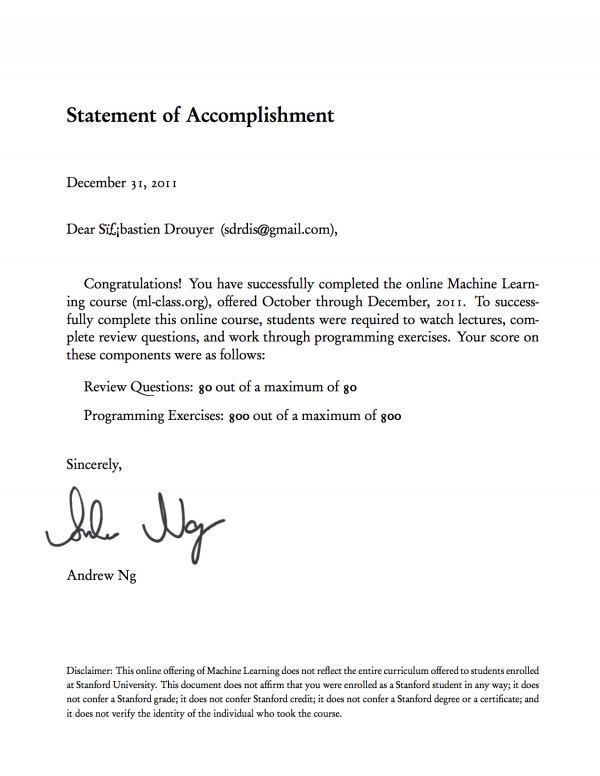Stanford - coursera : Machine learning
Introduction
Machine learning is a branch of Artificial Intelligence and is the science of getting computers to act without being explicitly programmed. It is used on several domains, such as:
- Image recognition
- Optical character recognition
- Sound recognition
- Prediction
- Spam filtering
- Web search
- And so many more...
This free online course is the first one I followed and a precursor of the coursera website.
Syllabus
The course is 10 weeks long. Each week is composed of videos, quizz and octave exercices (automatically checked online). It took me about 5 hours per week to complete the course, composed of roughly 2 hours watching the videos and 3 hours answering the quizz and exercices.
Week 1
- Introduction
- Linear Regression with One Variable
- Linear Algebra Review
Week 2
- Linear Regression with Multiple Variables
- Octave Tutorial
Week 3
- Logistic Regression
- Regularization
Week 4
- Neural Networks: Representation
Week 5
- Neural Networks: Learning
Week 6
- Advice for Applying Machine Learning
- Machine Learning System Design
Week 7
- Support Vector Machines
Week 8
- Clustering
- Dimensionality Reduction
Week 9
- Anomaly Detection
- Recommender Systems
Week 10
- Large Scale Machine Learning
- Application Example: Photo OCR
- Conclusion
Feedback
Though it is certainly quite a time investment, I cleary recommend following this course if, as I did, you are interested in the field but have no idea how it works. Videos are very clear, and the exercices are doable and a great complement to the course material. You learn to solve real world problems in this exciting field.
Moreover, I had a really great return on investment on this course, since I used this new knowledge to solve various contests, such as the USPTO challenge (optical character recognition, 6th place) and the Nasa Robonaut challenge (object recognition, 1st place).
